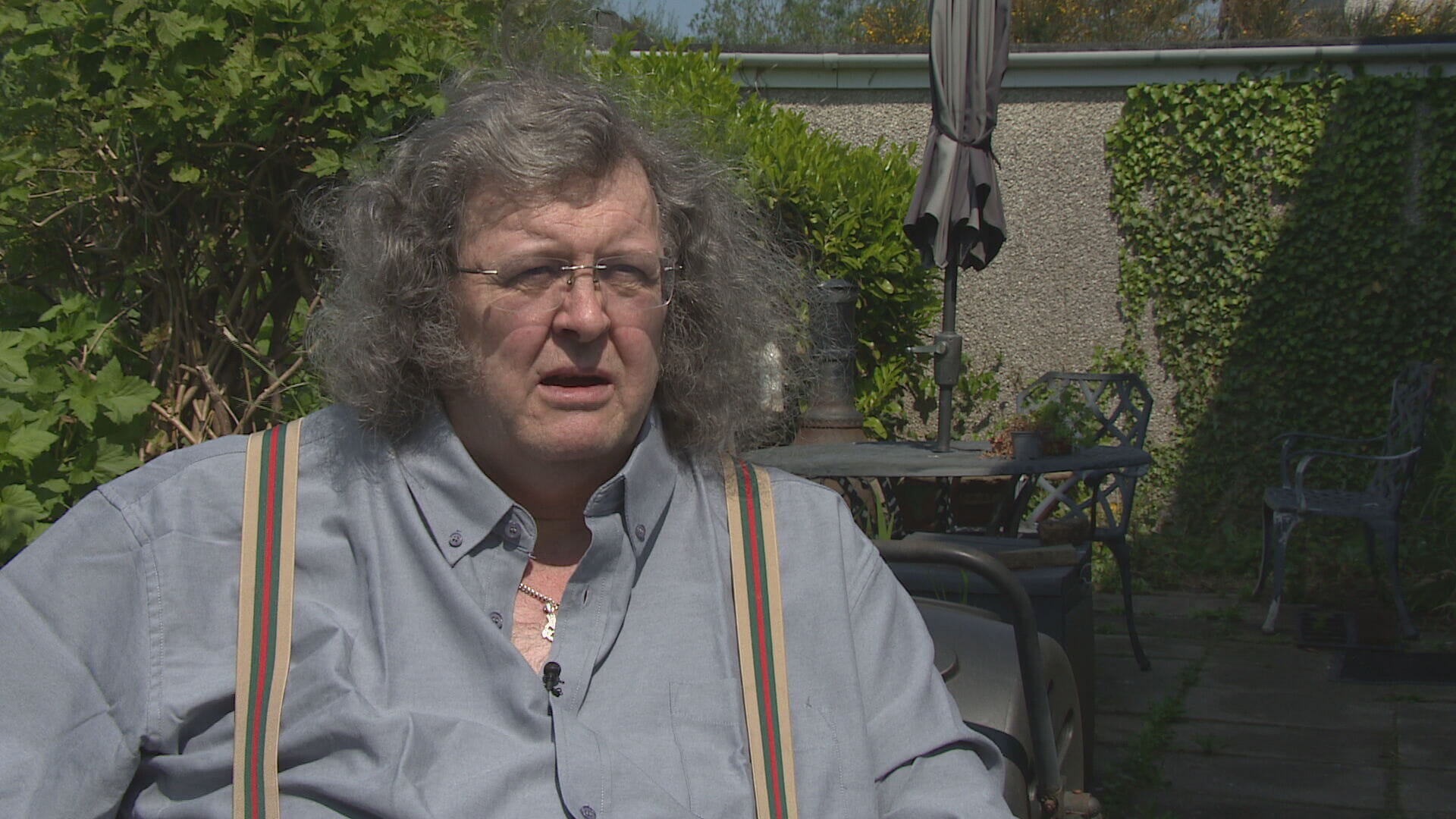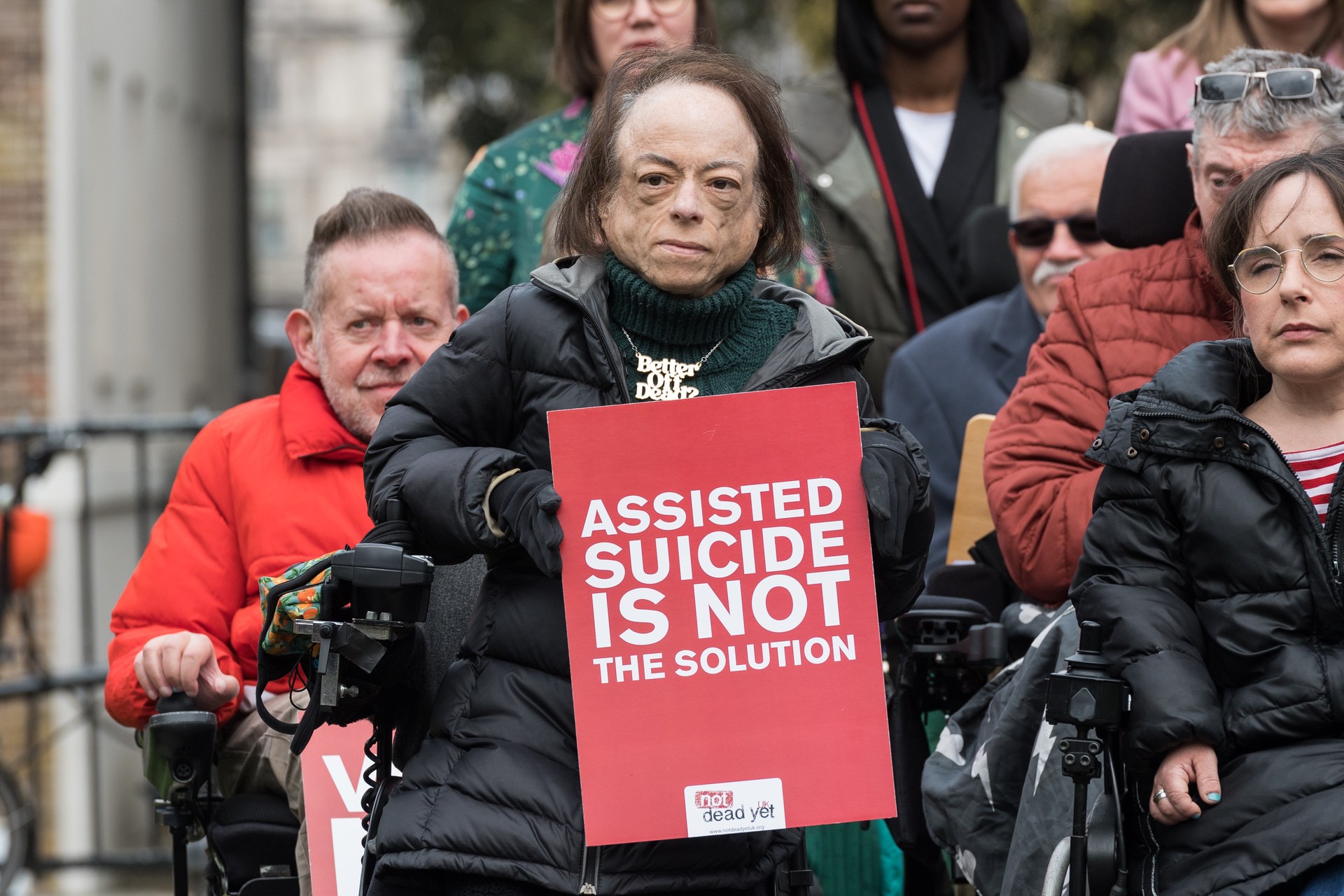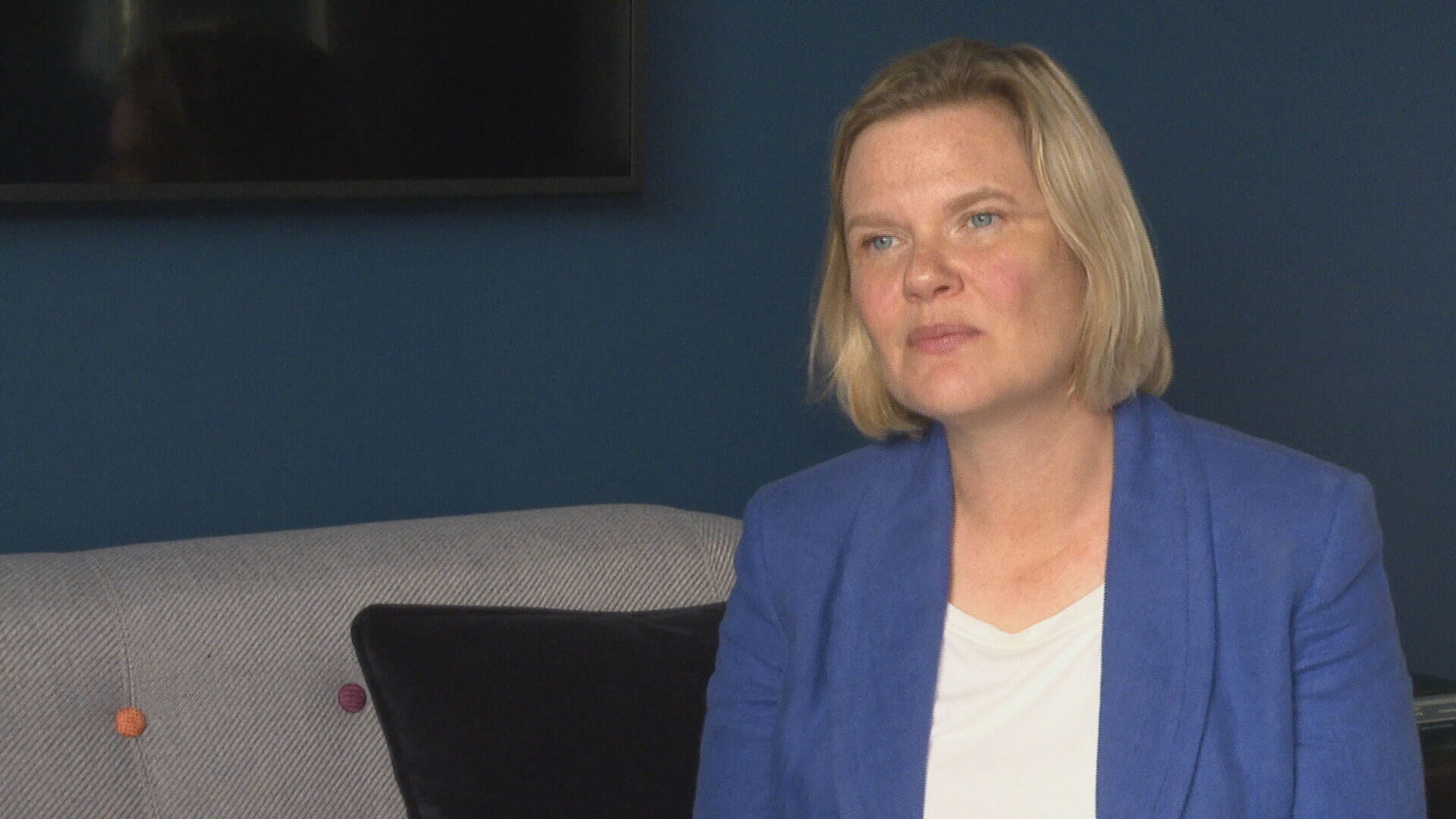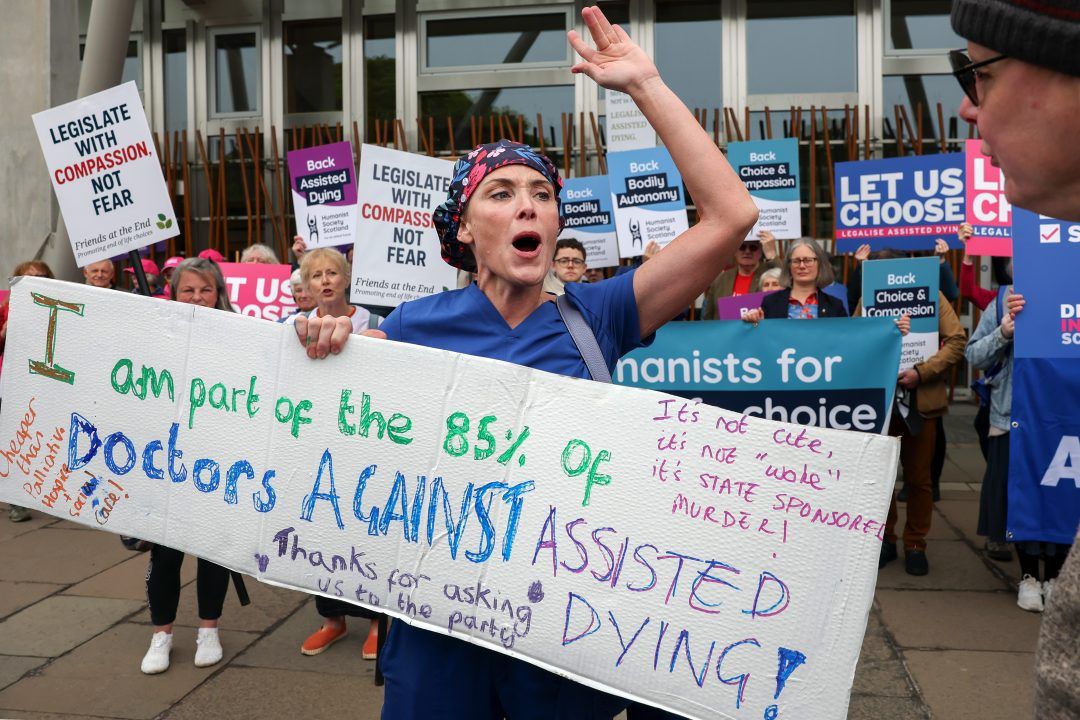MSPs will be asked on Tuesday to vote with their conscience on whether to introduce assisted dying in Scotland.
They will be asked to back the general principles of the legislation, which would legalise assisted dying, in a landmark vote expected to take place around 7pm.
Proposed by Scottish Lib Dem MSP Liam McArthur, the bill is the third attempt made by MSPs to change the law.
Previous moves by the late Margo MacDonald and Scottish Green co-leader Patrick Harvie failed to pass, while former Lib Dem MSP Jeremy Purvis did not receive enough support to introduce a similar Bill in 2004.
If the initial vote is passed on Tuesday, the Bill would need to clear two more phases of parliamentary scrutiny before it could become law.
The legislation would allow terminally ill Scots to take steps to end their own lives, but the Bill has sparked heated debate, with detractors suggesting it could lead to people feeling pressured to end their life.
What is the Assisted Dying Bill?
Key criteria
-
 Two doctors will need to independently certify someone is both terminally ill and has the mental capacity to request an assisted death
Two doctors will need to independently certify someone is both terminally ill and has the mental capacity to request an assisted death -
 Only those who have lived in Scotland for at least 12 months will be eligible
Only those who have lived in Scotland for at least 12 months will be eligible -
 They must be registered with a GP in Scotland
They must be registered with a GP in Scotland -
 There must be at least two weeks between a request being made and the necessary medication being provided
There must be at least two weeks between a request being made and the necessary medication being provided -
 The patient must have the capacity to take the life-ending medication themselves
The patient must have the capacity to take the life-ending medication themselves
Who is for the Bill?
Supporters of a change in the law on assisted dying will gather outside the Scottish Parliament on Tuesday to show their support for McArthur’s Bill.
Organised by Dignity in Dying Scotland, the event will bring together individuals living with terminal illnesses, bereaved families, and supporters of end-of-life choice.
The group argue that, along with good care, dying people who are terminally ill and mentally competent adults deserve the choice to control the timing and manner of their death.
Ally Thomson, director of Dignity in Dying Scotland, said: “It is the voices of dying Scots and those who have watched a loved one endure a harrowing death that are at the centre of this bill. Their message to MSPs is clear – it’s time to deliver compassion, safety and choice for people facing a bad death.
“This demonstration is about showing the human cost of the suffering caused by the current blanket ban on assisted dying – a cost that is simply too much for dying people, and their family and friends to bear.”
Health secretary Neil Gray will speak for the Scottish Government during the debate and will be the lead minister during amendments at stages two and three.
He announced on Monday that he will abstain from the initial vote.
Scottish Conservative leader Russell Findlay has said he will support the Bill.
 STV News
STV NewsJohn Robins, from Cardross, recalled his wife pleading with him to help end her life before dying from pancreatic cancer last year.
He said the last four weeks of Mary’s life were “hellish.”
He told STV News: “She pleaded to be allowed to go, (for me) to end it for her. I couldn’t do that.
“It wasn’t just the pain; she got to the stage where she was frightened of her carers – who she got to know well – because of what they had to do.
“Why keep someone in that position? She wanted to be out of it and nobody could do anything. I used to work in animal care, and if I saw someone leave a dog to die that way, I could have had them prosecuted.”
John, who was diagnosed with incurable cancer himself in 2022, said he believes people should be given the choice to end their own life.
“If the Bill passes, it might not be in time to help me – but I could afford to go to Switzerland or Holland and pay for it.
“I don’t think I will do it. But at the end, it should be painless, dignified, and controlled, so there’s no loophole.”
Who is against the Bill?
First Minister John Swinney said last week he will not support the proposed legislation, setting out various reasons for his decision.
The FM said he was concerned the bill would “alter the relationship” between patients and doctors in an “irrevocable and detrimental fashion”.
He also said the “most vulnerable in our society and those who may consider themselves a burden to their families or to the state” may feel “undue pressure” to end their life prematurely.
He was supported in his view on Monday by former First Minister Nicola Sturgeon, who said she too would be voting against the Bill.
“I do not believe it will ever be possible to even identify, let alone guard against what is often described as internal coercion – a feeling on the part of terminally ill individuals that others might be better off if they were no longer here,” she said.
“I worry that older people in particular may be vulnerable to such a feeling.
“It would risk a situation in which a right to die might become, in the minds of some people, a perceived duty to die.”
Scottish Labour leader Anas Sarwar, deputy first minister Kate Forbes, and former first minister Humza Yousaf have all said they will vote against the legislation.
A rally against the Bill will also take place at Holyrood on Tuesday.
Actress Liz Carr, best known for her role in the BBC crime drama Silent Witness, will be among the speakers at the event.
 Getty Images
Getty ImagesMs Carr, a disability rights campaigner and a member of the Not Dead Yet group, said: “Liam McArthur’s Bill is dangerous for older, ill and disabled people across Scotland — even more so than the Kim Leadbeater’s Bill being considered in Westminster.”
To qualify for assisted suicide under the Bill a person must have an ‘advanced and progressive disease, illness or condition from which they are unable to recover and that can reasonably be expected to cause their premature death’.
“As someone who as a teenager was told by doctors that I wouldn’t live to be old because of my condition, this definition applies to me.”
She continued: “The McArthur Bill is not just about terminal illness, it’s about disabled people.
“It is not a limited or modest Bill, and disabled people across Scotland are right to be deeply concerned.”
 STV News
STV NewsDr Gillian Wright is a former palliative care doctor and campaigner for Our Duty Of Care, a group of healthcare workers who oppose assisted dying.
She said the bill puts vulnerable groups at risk, including the disabled, people experiencing mental health issues and victims of domestic abuse.
“There are all sorts of unintended problems and consequences this kind of legislation throws up,” she said.
“We’re particularly concerned that people could feel pressured into taking their own life – that what begins as a choice could become a pressure or even a duty to die.”
Dr Wright reiterated the group’s calls for better investment in the health service, particularly in palliative care and mental health.
She added: “We need more funding, investment of time and priority into community and care. There are more MSPs than there are specialist palliative care doctors in Scotland.
“We need patients to be supported with truly comprehensive services, addressing both psychological and physical symptoms, rather than just being given an option to take their own life.”
What does the Bill say in Scotland?
If the Bill becomes law, it would give people at the advanced stage of a terminal illness the option of requesting help to end their life.
Initially, McArthur’s Bill would apply to those aged 16 or older and who have been resident in Scotland for at least a year.
However, the MSP for Orkney Islands said last week he would raise the minimum age requirement to 18.
Under the plans, those wanting an assisted death would require assessment of two doctors and would need to undergo a waiting period to reflect on their decision to proceed.
The plans ensure those wanting an assisted death are made aware of all options, including palliative care. Doctors would be able to conscientiously object to being involved in the process.
How does it differ from the proposed legislation in England?
Similar legislation to legalise assisted dying in England and Wales is also being voted on by MPs at Westminster.
Assisted suicide is banned in England, Wales and Northern Ireland, with a maximum prison sentence of 14 years.
In Scotland, it is not a specific criminal offence, but assisting the death of someone can leave a person open to being charged with murder or other offences.
Labour MP Kim Leadbeater formally introduced her Terminally Ill Adults (End of Life) Bill to the UK Parliament in October last year – applying only to England and Wales.
MPs supported the legislation in November and the Bill returns to the Commons on May 16, when MPs will be asked whether or not it should become law.
The proposed legislation for England and Wales says that anyone who wants to end their life must:
- be over 18 and live in England and Wales, and have been registered with a GP for at least 12 months
- have the mental capacity to make the choice and be deemed to have expressed a clear, settled and informed wish, free from coercion or pressure
- be expected to die within six months
- make two separate declarations, witnessed and signed, about their wish to die
- satisfy two independent doctors that they are eligible – with at least seven days between each assessment
Follow STV News on WhatsApp
Scan the QR code on your mobile device for all the latest news from around the country
































